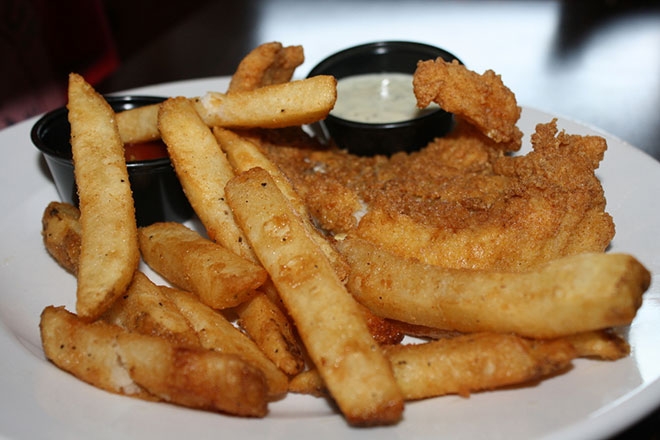Proudly pointing to the forty beer taps behind the bar, Alex Stewart, one of the owners of Tap Planet Co., says “Nanjing is an awesome city. Nanjing needs to have something like this.”
Alex and his brother Chase Stewart are two young American teachers at Nanjing Foreign Language School. At first sight, it would be hard to associate them with the entrepreneurs who opened the bar Tap Planet at Chic Hills during the National Day holiday.
More and more foreigners are coming to China nowadays, and it is quite normal to encounter some of them walking in the central districts of Nanjing. However, it is still fairly rare to see foreigners starting up businesses here. According to Nanjing Daily, in 2014, Nanjing hosted approximately twenty-four thousand foreigners who have lived here for more than six months. Nearly half are students and teachers.
“There are not too many foreigners who stay here for a long time. They see Nanjing as a place for them to come and learn, and then go on to something else,” said Chase. “So as far as people opening up businesses, it’s not so many.” Nevertheless, Chase said many restaurants owned by foreigners have popped up in the last few years. He said he knew other restaurants such as Jimmy’s, Ciao Italia and Taj Mahal whose owners are all expats living in Nanjing. The huge population in China creates a great market in the dining industry; it would be wise to try to get a stake.
“It [Nanjing] is the place for business,” said Berta del Barrio Echevarría, who opened up Selección Española three years ago in the crowded district of Xinjiekou. “When we first came to Nanjing there were almost no foreign restaurants in the city and we saw a chance to start our Spanish restaurant here”.
The opening up of these restaurants brought a special experience to the Chinese customers. Chase and Alex said that they are the first real tap house in Nanjing. They said that most of the bars in Nanjing only provide bottled beer. Many foreign restaurants claim that they import key ingredients for their food and Chinese customers buy into this kind of exotic taste.
“Someone introduced us to here, saying that it is run by a Spanish couple and the food here is authentic,” said Geng Xiaoyu, a junior Spanish major at Nanjing Normal University who was dining at Selección Español. Geng said the food tasted a little bit different from what she expected. She said she would still try some other restaurants if they have a Spanish connection since she is a Spanish major.
How to adapt to a Chinese environment is a question faced by all these foreign restaurants. Chase Stewart said that their bar originally targeted expats living in Nanjing. Eventually they found that eighty percent of their customers are Chinese. He said they are trying to discover Chinese customers’ habits to better arrange their service.
One of the ways to attract customers is to use social media and apps specifically made for Chinese users. Hu Tao, a customer at Tap Planet, said he discovered the bar when his friends saw an advertisement on WeChat and took him there.
Some restaurants have made a name for themselves by staying true to their traditional cuisine. Del Barrio said they have changed their menu several times but did not adapt the flavours for Chinese customers. “We wanted to be faithful to the original Spanish taste and we thought that our customers should try how it really is back in Spain,” said Del Barrio. “This has been a positive thing, since our customers appreciate the new flavours and the ones who have visited Spain before know that the taste is real.”
Making a slight change in the cuisine is another way to meet the demand of Chinese customers. Tap Planet provides burger, chips and barbeque as their food. Chase says burger and chips are the casual food served in American bars, but barbeque is a purely Chinese thing. Barbeques are not served in most American bars.
“In the beginning we kind of thought that ok, yeah, that’s a good idea. We should have that. We didn’t realise that it was going to become our main seller,” said Chase.
Alex added that the owners were constantly working on what to bring on the menu. “Xi Da Da [Xi Jinping] drank IPA with David Cameron during his trip to Britain, and it was all over the news. Then we had people coming in, ‘Give me fish and chips and IPA.’ So we don’t we have fish and chips yet. But we will,” he said.
Together with the food they provide, these foreigners are also bringing in some new culture. Alex and Chase said they tapped into the Chinese market at the right time as beer culture developed in China in the past five years. They said they can bring something different to the Chinese beer culture by digging out those not so famous craft beers.
“(We want to create) something like share cultures,” said Alex. “We also have a deal where if you bring in a local beer, just a bottle of beer that is unique from where you live, you can bring it here and exchange it. We just want people to share beer.”
Hu Tao continued that this shows the difference between foreigners and Chinese. Foreigners may think the rarer the better, but the Chinese might think they need to get all the renowned brands. Hu said these restaurants are not merely doing a business, but also creating cultures. “Food may go out of fashion in months, but culture will make you the leader in the industry,” said Hu.









